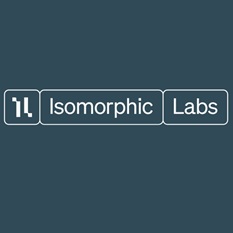Agentic AI Comparison:
Google AI Co-Scientist vs Isomorphic Labs
Introduction
This report offers a detailed comparison of Isomorphic Labs and Google AI Co-Scientist, two pioneering AI-driven platforms in scientific research and drug discovery. The analysis evaluates both agents using the metrics of autonomy, ease of use, flexibility, cost, and popularity, referencing the latest available context and respective official sources.
Overview
Google AI Co-Scientist
Google AI Co-Scientist is an AI system designed by Google Research that aims to accelerate scientific breakthroughs by combining machine learning with scientific reasoning. The agent is intended to work as a collaborative and autonomous scientific assistant—hypothesis generation, experimental planning, and analysis—across domains, not just drug discovery, and is described as an effort to democratize powerful scientific investigation tools.
Isomorphic Labs
Isomorphic Labs, an Alphabet company spun out of DeepMind, is focused on reimagining the drug discovery pipeline through a general, scalable AI-first platform. The company leverages state-of-the-art machine learning (including AlphaFold) and Google Cloud’s computational resources to model biology and chemistry at a foundational level. It collaborates with pharmaceutical partners and is preparing to enter human clinical trials with AI-designed drugs.
Metrics Comparison
autonomy
Google AI Co-Scientist: 9
Google AI Co-Scientist is explicitly built as an autonomous research agent, intended to independently propose experiments, test hypotheses, and learn from data with minimal supervision. Its design emphasizes autonomy across a variety of scientific domains.
Isomorphic Labs: 8
Isomorphic Labs builds highly autonomous AI systems capable of simulating complex biological processes and reducing experimental burdens. Its models are designed to function largely automatically, but the platform is still framed as a collaborative tool for scientists, and key decision points such as clinical trials remain human-led.
Both systems feature strong autonomy, but Google AI Co-Scientist is architected to rival or exceed human baseline performance in certain research tasks, and more directly targets autonomous operation for the broader scientific community.
ease of use
Google AI Co-Scientist: 8
Google AI Co-Scientist is designed to democratize scientific tools, supporting broad adoption by researchers with varying backgrounds. Its interfaces and workflows are intended to lower the barrier to entry for advanced AI-driven research.
Isomorphic Labs: 6
Isomorphic Labs' platform is sophisticated and powerful, targeting expert users in life sciences with deep knowledge in biology, chemistry, and AI. The complexity of the platform and its integration into early-phase drug discovery means ease of use may be moderate for non-specialists.
Google AI Co-Scientist is more user-friendly for the general research audience, whereas Isomorphic Labs targets experts in a specialized field.
flexibility
Google AI Co-Scientist: 9
Google AI Co-Scientist is not limited to drug discovery but is meant to be a scientific collaborator across multiple domains (e.g., chemistry, biology, physics), offering versatile workflows and research strategies.
Isomorphic Labs: 7
The platform is built to be generally applicable across disease areas and can scale to a variety of biochemical and medicinal tasks, but is currently focused on drug discovery in the life sciences.
Google AI Co-Scientist shows greater cross-domain flexibility, while Isomorphic Labs provides expert-level specialization in biological research.
cost
Google AI Co-Scientist: 7
Google AI Co-Scientist aims to democratize scientific research and, while details of pricing are not explicit, the platform is expected to be more broadly accessible, potentially through open science initiatives or institutional partnerships.
Isomorphic Labs: 4
Isomorphic Labs operates as a commercial venture, leveraging substantial computational resources (such as Google Cloud graphics accelerators) and maintaining exclusive partnerships with pharmaceutical firms. Access to the platform typically requires significant investment and is not oriented toward the general research market.
Google AI Co-Scientist is likely more cost-effective and accessible to a wider user base, whereas Isomorphic Labs’ high-end capabilities come with higher costs and exclusivity.
popularity
Google AI Co-Scientist: 6
Google AI Co-Scientist is relatively new and has not yet achieved the public or industry recognition of projects like AlphaFold. It is, however, backed by Google’s research reputation and is positioned for broader recognition as adoption grows.
Isomorphic Labs: 7
Isomorphic Labs has generated considerable excitement within the pharmaceutical and AI communities due to its DeepMind pedigree, its breakthroughs with AlphaFold, and substantial funding (e.g., $600 million raised). However, its focus on industry partnerships over public access affects mainstream popularity.
Isomorphic Labs currently enjoys higher visibility due to past successes and large-scale investments, but Google AI Co-Scientist may gain popularity as its user base expands.
Conclusions
Isomorphic Labs and Google AI Co-Scientist are both at the forefront of AI-driven scientific research, but they serve different use cases and audiences. Isomorphic Labs excels in specialized, high-autonomy applications in drug discovery, leveraging proprietary technology and exclusive collaborations. Google AI Co-Scientist prioritizes accessibility, cross-domain flexibility, and a more democratic approach to scientific discovery. Both are highly autonomous, but Google AI Co-Scientist offers broader ease of use and flexibility at a potentially lower cost, while Isomorphic Labs leads in domain-specific impact and industry attention.

